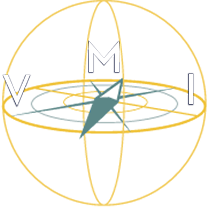
Betsy is the founder and program director of Vancouver Manuscript Intensive. She designed and directed The Writer’s Studio at S.F.U. from 2001-2012; and has been a TWS Mentor or on TWS faculty for many of the past twenty years. She has also been on faculty as Sage Hill Writing Experience (SK), as well as U.B.C.’s Booming Ground, Metchosin International Summer School of the Art, and Smithers Rural Writers Retreat (all in B.C.).
Betsy has been a manuscript consultant and editor for more than 30 years and has published 14 books of creative nonfiction, poetry and mixed genre. Her best-selling book of 24 essays on writing, Breathing the Page: Reading the Act of Writing (Cormorant Books, 2010), has received critical acclaim. “What a pleasure to have the complex, crazy-making, mysterious process we call ‘creative writing’ beautifully illuminated by a legendary teacher. This classic guide to writing well belongs on every writers’ bookshelf,” says Deborah Campbell, author of the Hilary Weston Prize-winning A Disappearance in Damascus. A second edition with ten new essays will be published by Cormorant Books in the fall of 2023. Writers and authors she has mentored have gone on to publish books and win, or be shortlisted for, numerous major awards.
What will VMI participants gain from the program?
An in-depth understanding of what their manuscript narrative requires, then how to make it happen on the page for their reader.
What is the most valuable piece of writing advice you have received?
To see the editing and revision process is as much of an act of discovery and creativity as writing the first draft is.
What book, poem or other written work has been most inspirational to you?
Books by Nicole Brossard, Adrienne Rich and Virginia Woolf. Most recently, books by Tanya Tagaq, Claudia Rankin, and Rachel Cusk have been invigorating.
What books do you recommend VMI participants read for additional advice?
The books I recommend are very specific to each writer I am working with.
What are you currently working on?
In the fall of 2020, a second edition of my much-loved memoir, Bloodroot—Tracing the Untelling of Motherloss (originally published in 2000) is coming out. It includes a long essay by me about what I have learned from that book over the past twenty years.
My book of prose poems, Lost Lagoon/lost in thought (2020) was published just as the pandemic hit North America. This necessitated my promoting it entirely online. You can find the video of my virtual book launch on my website (www.betsywarland.com). I will be creating a Lost Lagoon/lost in thought e-book with stills and short videos my partner and I have taken of the lagoon over the years.
Also, I am working on finishing a one-act opera, with composer Lloyd Burritt, called The Art of Camouflage to be performed in 2021. It’s based on my 2016 memoir, Oscar of Between — A Memoir of Identity and Ideas. The memoir began as an online, interactive salon that ran for almost five years and is still available on my website. In Oscar’s Salon, I featured excerpts from that work-in-progress alongside a guest writer, visual artist or composer’s work that bounced off of my excerpts. I thoroughly enjoyed curating this salon.
What is the most valuable insight or skill that your VMI writers have learned from you?
To make certain that the narrative proximity is accurate throughout—from choice of language to how deeply each narrative element needs to be evoked to identifying the form or structure that most accurately embodies the narrative’s proximity.
What do you gain from the mentoring process?
The discovery process! It’s never the same. First, figuring out how to most effectively convey to each writer what the manuscript needs (as contrasted to what the writer is assuming it needs). Then working toward that eureka moment when the writer (and the manuscript) find their feet together, team up, and see it through until it becomes the most compelling book possible.
What will VMI participants gain from the program?
An in-depth understanding of what their manuscript requires from them and how to make it happen, and an increased connection with other writers and authors.
What do you enjoy most about being a VMI mentor?
The challenge of figuring out what the manuscript is really about (as contrasted to what we think or want it to be about). This figuring out never fails to teach me a lot about the nature of narrative, craft and the writing process. Supporting each writer to trust the narrative s/he has been “given,” then allow it to guide you is exciting and always moving.
What do you wish you knew when writing your first manuscript that you know now?
How much devotion is required to write a fully realized and refined manuscript: it always takes way longer and demands way more than you think! Now I know this and have learned to savour it. Honour it.
